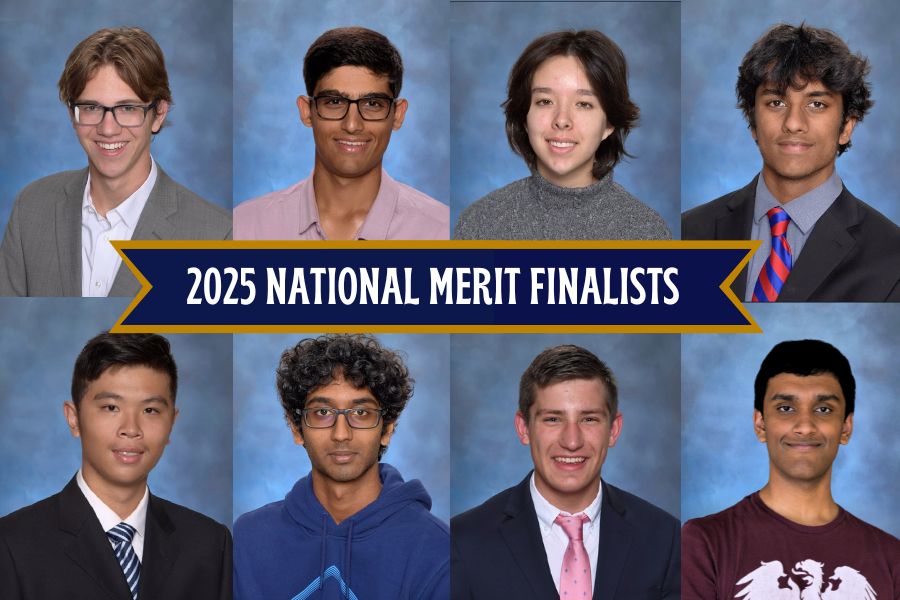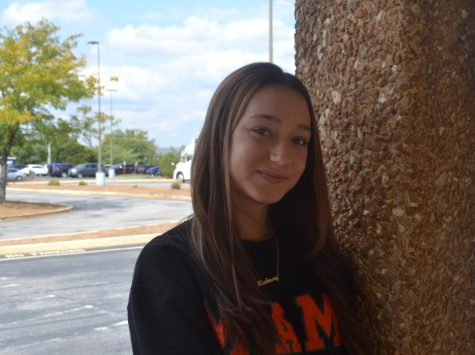In the midst of a deadly public health crisis, medical device company Johnson & Johnson announced Feb. 11 that they’ve made plans to develop a vaccine and a commitment to supply 1 billion vaccines worldwide for emergency use. COVID-19 is a combination of viruses Johnson & Johnson has dealt with before.
Key account specialist Kendra Royal works in the Janssen Neuroscience division of Johnson & Johnson. Royal focuses on delivering new medicines to treat brain disorders such as schizophrenia, treatment-resistant depression, and Alzheimer’s disease.
“My division has narrowed the possible solutions to one that will undergo human clinical trials by Sept. 2020,” Royal said.
If the test trial goes well, Johnson & Johnson is ready to have 1 billion vaccines prepared between Jan. and March. The company is increasing its manufacturing capacity with a new site in the U.S. and additions to existing sites in other countries to produce and distribute the potential vaccine quickly.
“We’ve been pursuing many different types of vaccines varied by the way the vaccine will enter the body,” Royal said. “The vaccine is being fast-tracked and is a huge investment that we are making. We may lose money from this, but we are confident we have found the right vaccine.”
Johnson & Johnson worked with various corporations to combat the Ebola epidemic. Within six months they went from a vaccine in the lab, to a vaccine in the clinic and made it accessible for emergency situations. They plan to follow a similar trajectory for COVID-19. Similar to the Ebola vaccine, this one will be available nonprofit.
“It won’t be free, but we are not going to raise the price to make money on it. We’re going to break even,” Royal said. “Our credo [statement of beliefs] serves as a guide to decision-making and integrity in the business. [It] states that our first responsibility is to society and patients with illnesses. Then to family members, the community as a whole, doctors and nurses, and employees and shareholders.”
While it’s possible that by reaching a point of containment the pandemic could end, a vaccine is necessary to ensure the virus does not come back, a possibility. Mark Drake, General Surgeon at Mercy Hospital believes that the release of this vaccine will promote comfort in society.
“Once the vaccine is released, it will provide a sense of security, knowing that it is something that can now be prevented. If people act responsibly and get vaccinated, it would alleviate [the fears] and the catastrophic ramifications of the pandemic,” Drake said.
Drake believes this will prompt changes to the scientific community for preventing and dealing with future viruses.
“We need pandemic preparedness, diagnostic networks learning very quickly what new viruses have emerged and vaccine platforms ready to work against these viruses,” Drake said.
Missouri’s stay-at-home order is set to expire May 4. Medical Science teacher Amy Cohen believes that as our daily lives begin to reach a degree of normalcy, certain aspects of our current behavior will remain the same, while society will remain undoubtedly changed.
“I think some actions we are doing now will stay for a while, such as not shaking hands, washing hands a lot, and wanting to support local businesses. We are seeing the environmental impact of people not commuting/traveling as much which is actually helping the planet. It’d be great if as we resume our ‘normal’ lives we continue to do things that reduce air pollution,” Cohen said.



![Smiling in a sea of Longhorns, Fox 2 reporter Ty Hawkins joins junior Darren Young during the morning Oct. 3 pep rally. The last time West was featured in this segment was 2011. “[I hope people see this and think] if you come to [Parkway] West, you will have the time of your life because there are so many fun activities to do that make it feel like you belong here. I was surprised so many people attended, but it was a lot of fun,” Young said.](https://pwestpathfinder.com/wp-content/uploads/2025/10/Edited2-1200x798.jpg)
![West High seniors and families listen as a representative of The Scholarship Foundation of St. Louis, Teresa Steinkamp, leads a Free Application for Federal Student Aid (FAFSA) workshop. This session, held in the library, provided guidance on financial aid, scholarships and student loan options. “This event is very beneficial for any seniors who are applying to or considering applying to colleges after high school [because] the cost of college is on the rise for seniors and parents,” college and career counselor Chris Lorenz said.](https://pwestpathfinder.com/wp-content/uploads/2025/09/DSC_4478-1200x778.jpg)
![Senior Kamori Berry walks across the field during halftime at the Homecoming football game on Sept. 12. During the pep assembly earlier that day, she was pronounced Homecoming Queen. “I thought it was nice that the crowd [started] cheering right away. I know [my friends] were really excited for me, and my family was happy because typically non-white people don't win,” Berry said.](https://pwestpathfinder.com/wp-content/uploads/2025/09/DSC7046-Enhanced-NR-1200x798.jpg)



![Pitching the ball on Apr. 14, senior Henry Wild and his team play against Belleville East. Wild was named scholar athlete of the year by St. Louis Post-Dispatch after maintaining a high cumulative GPA and staying involved with athletics for all of high school. “It’s an amazing honor. I feel very blessed to have the opportunity to represent my school [and] what [it] stands for,” Wild said.](https://pwestpathfinder.com/wp-content/uploads/2025/05/unnamed-6-1200x714.jpg)
![The Glory of Missouri award recipients stand with their certificates after finding out which virtue they were chosen to represent. When discovering their virtues, some recipients were met with contented confirmation, while others, complete surprise. “I was not at all surprised to get Truth. I discussed that with some of the other people who were getting the awards as well, and that came up as something I might get. Being in journalism, [Fellowship of Christian Athletes and] Speech and Debate, there's a culture of really caring about truth as a principle that I've tried to contribute to as well. I was very glad; [Truth] was a great one to get,” senior Will Gonsior said.](https://pwestpathfinder.com/wp-content/uploads/2025/04/Group-Glory-of-Missouri.jpg)


